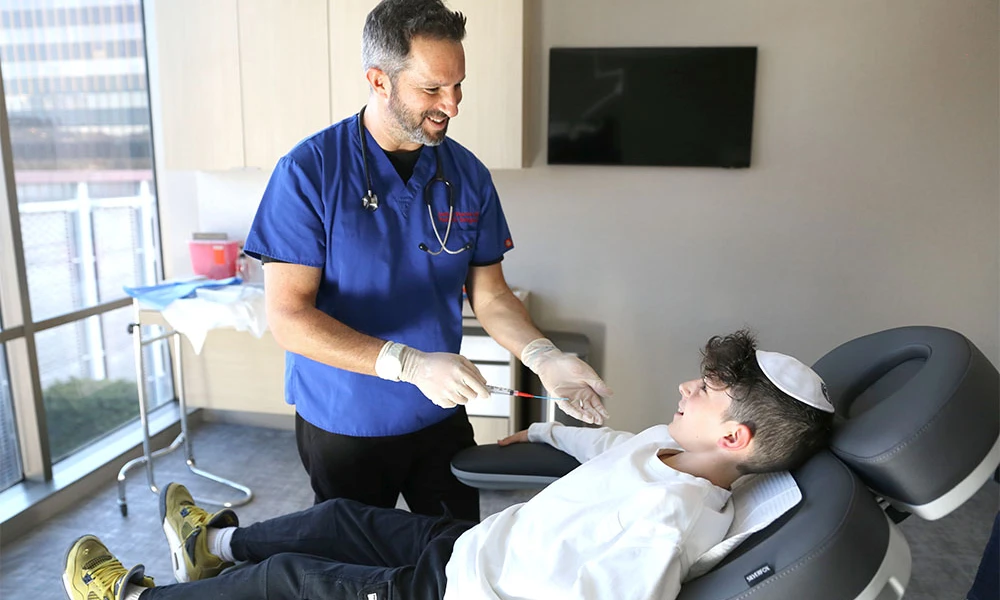Visiting a urologist for the first time can feel intimidating or uncomfortable, especially if you’re unsure what to expect. Whether you’re experiencing urinary problems, kidney pain, or have concerns about your reproductive health, knowing what happens during that initial appointment can help ease anxiety and prepare you for a productive visit.
If you live in Brooklyn and are considering a urology consultation, this guide will walk you through the typical first appointment experience—what to bring, what questions to ask, and what the doctor will do to evaluate your condition.
Why See a Urologist?
Urologists specialize in the urinary tract system and male reproductive organs. Common reasons for referral to a urologist include:
- Frequent or painful urination
- Blood in urine
- Kidney stones
- Prostate issues
- Erectile dysfunction
- Urinary incontinence
- Recurrent urinary tract infections (UTIs)
If your primary care provider has recommended a urology evaluation or you have symptoms that affect your daily life, it’s a good idea to make an appointment with a Brooklyn urologist.
Preparing for Your Appointment
Before your visit, it’s helpful to:
- Write down your symptoms, including when they started, severity, and frequency
- List any medications, supplements, or vitamins you’re taking
- Note any relevant personal or family medical history (especially related to urological or kidney problems)
- Bring your insurance information and identification
- Be ready to discuss lifestyle factors like diet, exercise, smoking, and alcohol use
Preparing this information ahead of time will help your urologist understand your condition better and recommend the right tests or treatments.
What Happens During the First Appointment?
1. Medical History Review
Your urologist will begin by asking detailed questions about your symptoms and medical background. This may include:
- Description of urinary issues or pain
- Sexual health and function
- Past surgeries or hospitalizations
- History of infections or chronic illnesses
- Family history of urological conditions like prostate cancer or kidney disease
Being open and honest helps the doctor make an accurate diagnosis.
2. Physical Examination
A physical exam typically follows the medical history review. For men, this may include a prostate exam, where the doctor gently feels the prostate gland through the rectum to check for enlargement or irregularities. For both men and women, the doctor may check the abdomen and genital area for tenderness, swelling, or abnormalities.
Don’t worry—urologists are experienced professionals who conduct these exams respectfully and with your comfort in mind.
3. Diagnostic Testing
Depending on your symptoms, your urologist may order one or more tests during or after the visit, such as:
- Urine tests: To check for infections, blood, or other abnormalities
- Blood tests: To assess kidney function and other health indicators
- Imaging studies: Ultrasound, CT scan, or X-rays to visualize the urinary tract or detect stones
- Urodynamic testing: To evaluate bladder function in cases of incontinence or retention
- Cystoscopy: Using a thin camera to look inside the bladder and urethra
Your urologist will explain any necessary tests and what they involve.
4. Discussion of Treatment Options
Once your urologist has gathered enough information, they’ll discuss the diagnosis and recommend treatment options tailored to your condition and lifestyle. This might include lifestyle changes, medications, minimally invasive procedures, or surgery.
They’ll also answer any questions you have and discuss follow-up appointments.
Tips for a Successful Appointment
- Be honest: Share all symptoms, even those you might find embarrassing.
- Ask questions: Understanding your diagnosis and treatment helps you make informed decisions.
- Bring a friend or family member: They can provide support and help remember information.
- Take notes: Write down important points or instructions from your urologist.
After the Appointment
Following your visit, you might receive test results by phone, email, or during a follow-up appointment. If treatment is recommended, your urologist will guide you through the process and monitor your progress.
If you experience worsening symptoms or new concerns, contact your urologist promptly.
Why Choose a Brooklyn Urologist?
Brooklyn is home to skilled urology specialists who combine advanced technology with personalized care. Choosing a local urologist means:
- Access to comprehensive diagnostic tools
- Convenient appointment locations
- Understanding of local health concerns and patient needs
- Multilingual services to serve Brooklyn’s diverse population
Final Thoughts
Your first urology appointment is an important step toward better health and peace of mind. By preparing ahead, understanding what to expect, and communicating openly with your doctor, you’ll help ensure a smooth and effective experience.
If you’re ready to take control of your urological health, schedule a consultation with a trusted Brooklyn urologist today. Early care can prevent complications and improve your quality of life. We recommend urologist brooklyn.




